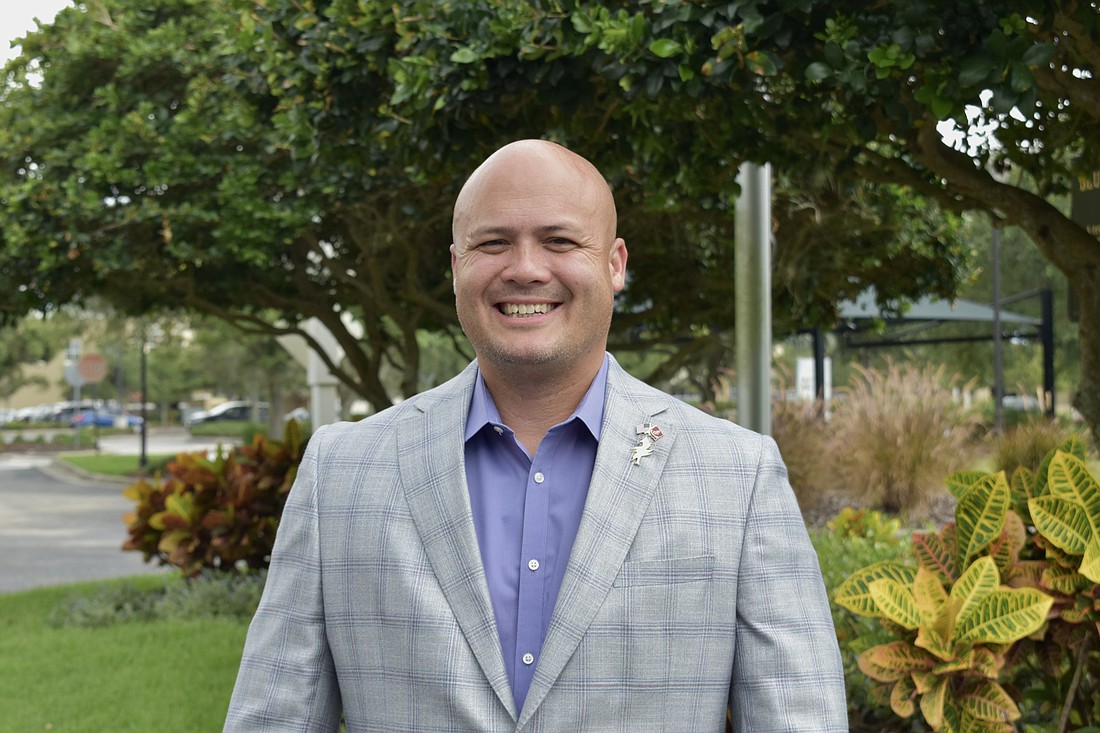- April 29, 2024
-
-
Loading

Loading

Manatee County At-Large Commissioner Jason Bearden said he is willing to discuss the lowering of wetland protections with those interested at his next Coffee with a Commissioner 9:30 a.m. Nov. 8 at Station 400 in Lakewood Ranch.
Bearden said he understands it is a contentious issue.
“People usually ask specific questions in regards to their neighborhoods and HOAs,” Bearden said of the Coffee with a Commissioner events. “So we talk to see if there’s anything I can do to help.”
Bearden talked about the lowering of wetland buffers from between 30 and 50 feet down to the state standard of between 15 and 25 feet after his Oct. 18 Coffee with a Commissioner at Kahwa Coffee in Lakewood Ranch.
Bearden said the media coverage of the Commission's vote only showed one side of the issue.
“They didn’t talk about the state issues," Bearden said. "They didn’t talk about how the islands and cities in Bradenton defer to the state. They didn’t talk about how many counties actually defer to the state. The story was ‘We’re destroying wetlands’ when there’s no specific evidence saying that deferring to the state is destroying wetlands.”
While Commission Chair Kevin Van Ostenbridge called Suncoast Waterkeeper a “discredited” organization during the commission meeting, Bearden didn’t have much to say about the local nonprofit that led a campaign to keep the additional buffer protections within the Comprehensive Plan.
He said he simply disagrees with the group’s stance that the board’s move jeopardizes water quality. Bearden acknowledged the amount of studies and data that Suncoast Waterkeeper presented to the commission, but insisted that none of it pointed to the state standard as causing harm to wetlands or water supplies.
“Moving a buffer 25 feet doesn’t disrupt your water,” he said. “This particular policy was put in place by the state over 30 years ago. The Florida Department of Environmental Protections has hundreds of environmental scientists. At any time in that 30-year time span, if they saw that deferring to the state was detrimental, FDEP would’ve said to move the buffers back further.”
Bearden said the data collected showed it was “hundreds of feet that made the biggest difference” and used Lakewood Ranch as an example of development done right.
“From a development standpoint, we can actually control where the runoff goes into the retention ponds,” he said. “Lakewood Ranch has done such a good job because they’ve been able to funnel where the runoff goes. That’s why we don’t have a lot of flooding issues up here.”
As far as the public backlash, Bearden said the “loudest” people attend the meetings. He views his primary role as an elected official to uphold the Constitution for his constituents, and he voted with the Fifth Amendment to protect property rights.
“Until you show me actual proof that deferring to the state affects your water, then you’re just making an assumption and giving an opinion, which opinions aren’t necessarily constitutional,” Bearden said. “We can’t take away somebody’s land without giving them just compensation.”